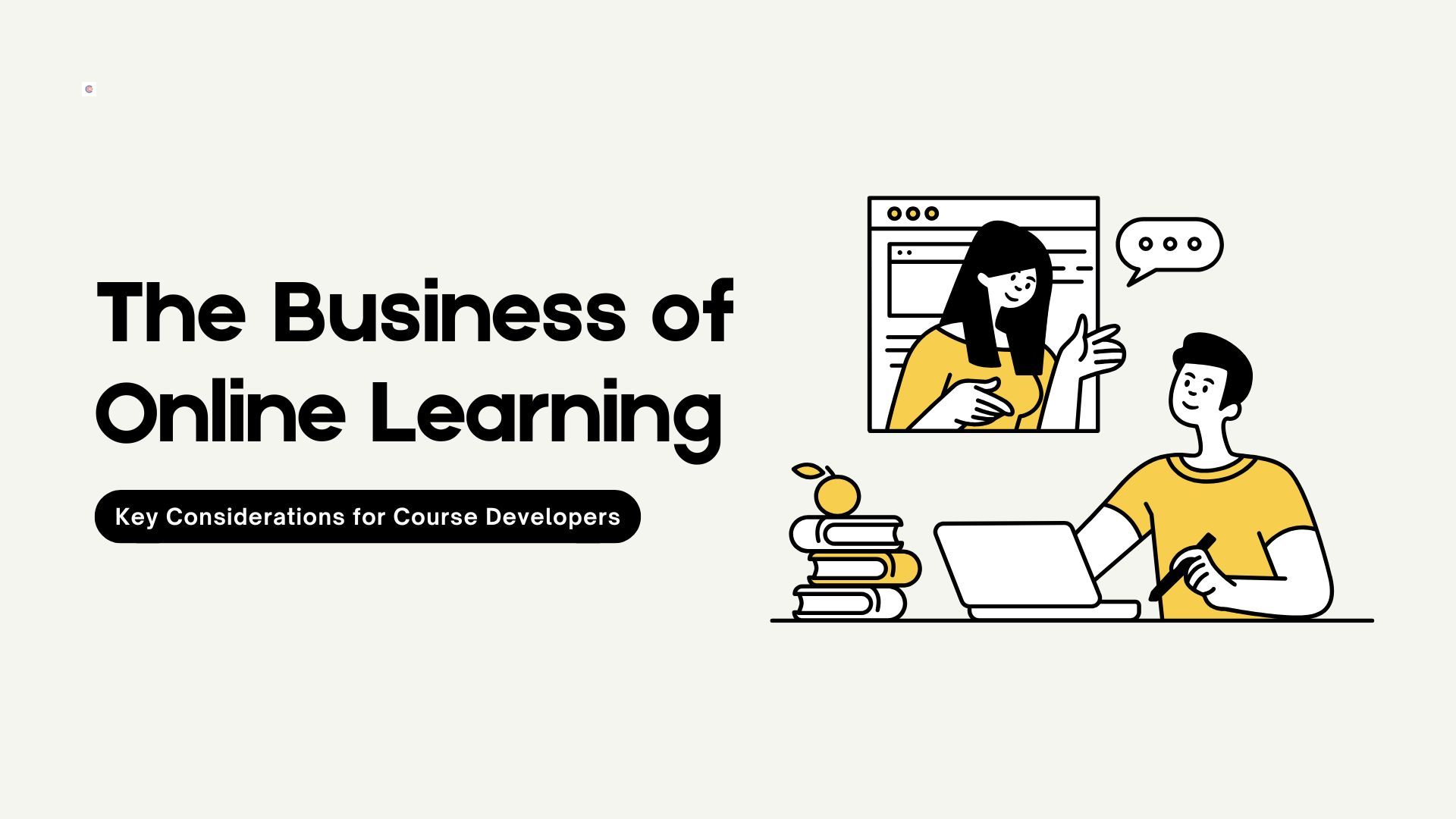The Business of Online Learning: Key Considerations for Course Developers

Within just a few decades, online learning has turned from an element of fiction movies into a flourishing business with millions of clients worldwide. Educational platforms offer materials in all areas possible: Business, Languages, Technology, Management, and Arts. However, as the market grows, the competition becomes tense too. So, how can one develop a course that would stand out from dozens of others and perfectly meet the needs of customers?
Peculiarities of Digital Learning
There is a misconception that online and offline education are pretty similar, and the only difference between them is the medium. In reality, however, digital learning has a bunch of specific features that one should keep in mind when one creates a new course.
- It completely relies on technology. Problems with internet connection, slow loading, outdated software, and malfunctioning devices can not only hinder the learning process but make it impossible. In the class, an educator can explain the new material by drawing a table on the board, but during an online lecture, it's impossible.
- It minimizes human interaction. Digital learning limits communication between students and teachers. However, getting and giving feedback is an essential part of the educational process. Therefore, it's important to offer clients alternative ways of interaction, like QA sessions or questionnaires.
- It does not set strict deadlines. When one studies online, one can choose the time and pace at which one studies. On the other hand, it is an advantage as students become more flexible and can combine education and work. However, deadlines that are too vague can weaken people's motivation to complete the course.
- It is accessible to most people. No matter where a person lives and how old they are, they can study online. All they need is an internet connection and a smartphone.
Legal Aspects of Digital Education Business
Apart from all the peculiarities mentioned above, a creator of an online course should also ensure they follow these regulations:
- Copyright laws: Anyone using images, music, or texts should obtain all the permissions for them.
- Intellectual property rights: When working on a lecture or a webinar, avoid plagiarism to avoid being accused of infringing someone's IP rights. You also need to protect your materials and ensure that learners do not use them for commercial purposes.
- Data protection regulations: As any digital educational platform collects users' private information, it must ensure this data is thoroughly protected.
To learn more about the legislation regulating online education in your area, consult reliable legal resources like Lawrina. This legal tech platform offers various contract templates for your business goals, a legal directory where you can find a lawyer specializing in education law, and materials about law and related topics.
Elements of a Successful Digital Course
Once you have studied all the legal and technical peculiarities of digital education, it's time to focus on the course and its structure. When people study online, they need to understand clearly what to expect. So, here's a checklist of the elements a good course must contain:
- Clear learning objectives: A student should understand what skills and knowledge they will get.
- Engaging content: It should be relevant, concise, and visually appealing.
Interactive elements: Quizzes, gamification, discussions, and live sessions can make the learning process more exciting. - User-friendly interface: The platform needs easy navigation and an appealing design.
- Effective assessments: Add regular quizzes, practical assignments, and projects so that educators and students can track their progress.
- Ongoing support: Prompt feedback and discussion forums are essential parts of effective learning.
- Practical applications: Include examples and case studies that demonstrate to students how the gained knowledge can be applied in real life.
- Measurable outcomes: There should be clear metrics to assess students' success.
- Accessibility: The course should be available to students with special needs.
A great example of an online course that meets all the characteristics mentioned above is Coursera's "Machine Learning" by Andrew N. For years, it has been attracting learners worldwide and remains one of the most visited courses on the platform.
Tips for Making Your Learning Course Viral
Unfortunately, many modern courses struggle to gain traction, even if they provide high-quality information. Here are a few recommendations on how you can make your product stand out from the herd in the online education market:
- Use emotional storytelling: Share personal anecdotes, success stories, or inspiring examples that connect with your audience on an emotional level.
- Gamify your course: Incorporate interactive elements, challenges, or rewards that encourage learners to participate and share their progress. Duolingo's language learning platform is a great example. Its gamified approach to learning has made it a viral sensation.
- Incorporate user-generated content: Encourage learners to create and share their own videos, blog posts, or pictures related to the course. A great example is Udemy's "Student Success Stories" campaign, which showcases learners' achievements to create a sense of community.
- Partner with influencers: Collaborate with industry experts, thought leaders or social media influencers to promote your course. Sometimes, the authority of one person is more powerful than a huge marketing campaign.
- Go offline: Organize live events, webinars, or Q&A sessions that bring learners together and create a sense of excitement around your course. Let them feel they're a part of a community.
Conclusion
The business of online learning requires careful preparation and knowledge of technical, legal, and human aspects. By understanding them and implementing effective marketing strategies, you can create successful courses that engage learners, drive your business growth, and contribute to the transformation of education. Let's make learning online a new black!